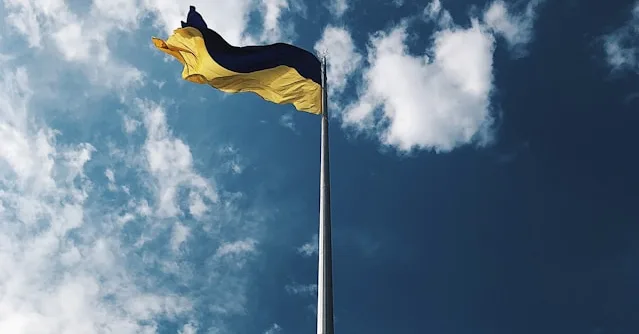Ukraine’s capital endures one of the largest drone attacks to date, while international aid and domestic military actions intensify the conflict with Russia
On July 30, 2024, Kyiv experienced one of its most significant drone assaults since the onset of the ongoing conflict with Russia. According to Kyiv’s military administration, the capital, along with much of central and eastern Ukraine, was placed under air raid alert late Tuesday night. Serhiy Popko, head of Kyiv’s military administration, reported that air defence systems engaged multiple targets, resulting in the destruction of over 30 Russian drones. Despite the severity of the attack, officials confirmed that there were no casualties or reported damage within Kyiv.
The intensification of the conflict has also seen a significant boost in military support for Ukraine from international allies. The Wall Street Journal reported that the United States is set to arm F-16 fighter jets, provided by other allied nations, with advanced American weaponry. This includes air-to-ground missiles, extended-range guided bomb packs, and both air-to-air and air-to-ground missiles, such as the AMRAAM and AIM-9X. The initial batch of these F-16s is expected to arrive in Ukraine this summer, with Ukrainian pilots having completed training in Europe and the U.S.
On the battlefield, Russia’s defence ministry announced the capture of Pivdenne in the Donetsk region, a strategic area adjacent to the Ukrainian stronghold of Toretsk. Ukrainian military sources indicated ongoing fierce fighting around Toretsk, with Russian forces attempting to breach Ukrainian defences in small, coordinated groups. Meanwhile, the Ukrainian military general staff reported Russian attempts to advance near Pokrovsk, another key location further west.
In a notable tactical response, Ukraine successfully targeted a Russian oil depot in Vozy, Kursk region, with a coordinated operation involving the Security Service of Ukraine (SBU) and other military units. This strike followed a previous attack on the Polevaya oil depot in the same region, which resulted in substantial fires. The Kursk region’s acting governor confirmed the missile attack, reflecting ongoing Ukrainian efforts to disrupt Russian logistical operations.
Domestically, Ukraine’s energy situation showed signs of improvement. For the first time in July, there were no power cuts reported, according to Ukrenergo, the state-run electricity operator. Yuriy Boyko, an advisor to Prime Minister Denys Shmygal, expressed optimism that if shelling ceased, power disruptions could be minimal over the coming months. Ukraine continues to import electricity from the EU to address gaps in domestic generation and is preparing for the upcoming autumn and winter seasons with alternative energy solutions.
In diplomatic developments, Ukraine has extended an invitation to Chinese Foreign Minister Wang Yi to visit Kyiv. This move follows a recent meeting between Yi and Ukrainian Foreign Minister Dmytro Kuleba in China. Additionally, Belarusian President Alexander Lukashenko has granted clemency to Rico Krieger, a German who was sentenced to death in Belarus on espionage charges. The German Foreign Office confirmed the pardon, amidst speculation of high-profile prisoner exchanges involving Belarus and its ally Russia.
In a parallel economic development, Russian lawmakers passed a bill permitting businesses to use cryptocurrencies for international trade, aiming to navigate Western sanctions that have affected Russia’s economy.
Analysis:
Political Perspective: The recent drone attack on Kyiv marks a significant escalation in the conflict, highlighting the persistent threat posed by Russia’s military strategy. The arrival of advanced F-16s, armed with cutting-edge U.S. weaponry, could shift the balance of power, enhancing Ukraine’s defensive and offensive capabilities. The diplomatic overture to China signals Ukraine’s intent to diversify its international support and strengthen geopolitical alliances. Meanwhile, Belarus’s pardon of a German national on espionage charges and the passing of a cryptocurrency bill by Russian lawmakers illustrate the broader geopolitical manoeuvring occurring in the region, with each development reflecting attempts to circumvent or respond to international pressures.
Social Perspective: The continuous bombardment of Kyiv and other Ukrainian regions underscores the severe impact on civilian life and the broader societal strain within Ukraine. The absence of casualties from the latest drone attack is a rare piece of good news, yet the ongoing threat contributes to a climate of fear and instability. The improvements in Ukraine’s energy sector offer a glimmer of hope for reducing the daily hardships faced by its citizens, particularly in light of frequent power outages. The focus on alternative energy sources is also indicative of a broader effort to maintain societal functionality amidst the conflict.
Racial Perspective: The conflict’s racial dimensions are less pronounced in the immediate context of the drone attacks and military updates. However, the broader implications of war often exacerbate ethnic tensions and impact minority communities, particularly in areas of conflict and displacement. The international response and support for Ukraine, including aid from diverse sources, reflect a global effort to address human rights and humanitarian concerns, including those affecting minority groups within the conflict zone.
Gender Perspective: The gendered impacts of war are often profound, with women and children disproportionately affected by conflict-related violence and displacement. While the current updates do not directly address gender-specific issues, the broader implications of ongoing conflict include heightened risks for women and girls, particularly in terms of safety and access to resources. Efforts to improve energy security and provide international support are critical in mitigating some of these risks.
Economic Perspective: The economic consequences of the war are evident in the broader context of international sanctions and Russia’s efforts to bypass them through cryptocurrency. The improvement in Ukraine’s energy situation provides a partial counterbalance to the economic strain caused by the conflict. The focus on alternative energy and international aid reflects a strategic approach to maintaining economic stability despite ongoing hostilities. Russia’s legislative changes highlight the economic adjustments being made in response to Western sanctions, aiming to sustain trade and financial flows amid increasing international pressure.
